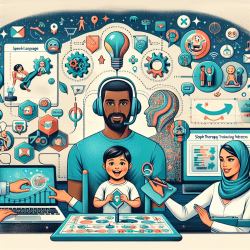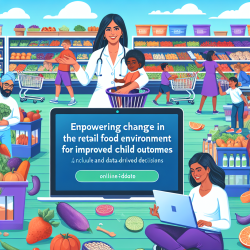Introduction
In the ever-evolving field of speech-language pathology, practitioners are constantly seeking innovative approaches to enhance therapy outcomes for children. One intriguing area of research that can offer valuable insights is the ongoing debate about legal personhood for animals. While seemingly unrelated, the discussion around animal cognition and legal rights can provide a fresh perspective on how we approach child therapy, emphasizing the importance of cognitive abilities and data-driven decisions.
Understanding Cognitive Abilities
The debate on animal legal personhood centers around the cognitive abilities of certain species, such as elephants and nonhuman primates. Proponents argue that these animals possess complex cognitive characteristics, including self-awareness and empathy, which are traditionally associated with humans. This recognition of cognitive abilities has significant implications for child therapy, where understanding and nurturing cognitive development is paramount.
Data-Driven Decisions in Therapy
As practitioners, we rely on data-driven decisions to tailor therapy plans to each child's unique needs. The animal legal personhood debate underscores the importance of scientific research in shaping legal and societal norms. Similarly, in child therapy, evidence-based practices are crucial for making informed decisions that lead to better outcomes. By staying updated with the latest research and integrating it into our practices, we can ensure that our therapy approaches are both effective and aligned with current scientific understanding.
Applying Insights to Child Therapy
Here are some ways practitioners can apply insights from the animal legal personhood debate to improve child therapy:
- Emphasizing Cognitive Development: Just as the debate highlights the cognitive abilities of animals, practitioners should focus on fostering cognitive development in children. This involves using evidence-based strategies to enhance skills such as problem-solving, self-awareness, and empathy.
- Utilizing Data for Personalized Plans: Data-driven decisions are at the core of effective therapy. Practitioners should continuously collect and analyze data to tailor therapy plans to each child's progress and needs, ensuring that interventions are targeted and impactful.
- Encouraging Further Research: The animal legal personhood debate demonstrates the power of research in influencing societal norms. Practitioners should be encouraged to engage in or support research initiatives that explore innovative therapy approaches and contribute to the advancement of the field.
Conclusion
The debate on animal legal personhood offers valuable insights for speech-language pathologists and child therapy practitioners. By recognizing the importance of cognitive abilities and embracing data-driven decisions, we can enhance therapy outcomes for children. As we continue to explore new research and innovative approaches, we can ensure that our practices are aligned with the latest scientific understanding, ultimately leading to better outcomes for the children we serve.
To read the original research paper, please follow this link: Legal Personhood for Animals: Has Science Made Its Case?










